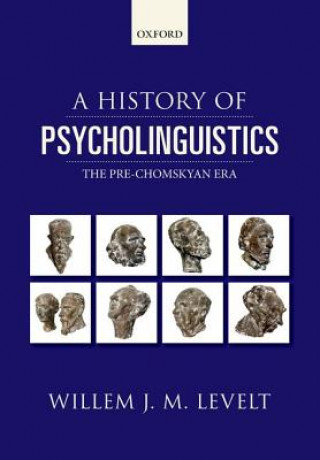
Kód: 02310290
History of Psycholinguistics
Autor Willem Levelt
How do we manage to speak and understand language? How do children acquire these skills and how does the brain support them?These psycholinguistic issues have been studied for more than two centuries. Though many Psycholinguists t ... celý popis
- Jazyk:
 Angličtina
Angličtina - Vazba: Brožovaná
- Počet stran: 672
Nakladatelství: Oxford University Press, 2014
- Více informací o knize

Mohlo by se vám také líbit
-

JJP Supplement 21 (2014) Journal of Juristic Papyrology
4295 Kč -

Artificial Intelligence at MIT
2330 Kč -

Hal Leonard Folk Banjo Method (Book/Online Audio)
379 Kč -

Geauga Bicentennial Journal
321 Kč -

Horizons of Traumatic Brain Injury Recovery
591 Kč -

Schwedische Volkssagen und Marchen
2419 Kč -

Einfuhrung in Die Kybernetik
1977 Kč
Dárkový poukaz: Radost zaručena
- Darujte poukaz v libovolné hodnotě a my se postaráme o zbytek.
- Poukaz se vztahuje na celou naši nabídku.
- Elektronický poukaz vytisknete z e-mailu a můžete ihned darovat.
- Platnost poukazu je 12 měsíců od data vystavení.
Více informací o knize History of Psycholinguistics
Nákupem získáte 216 bodů
 Anotace knihy
Anotace knihy
How do we manage to speak and understand language? How do children acquire these skills and how does the brain support them?These psycholinguistic issues have been studied for more than two centuries. Though many Psycholinguists tend to consider their history as beginning with the Chomskyan "cognitive revolution" of the late 1950s/1960s, the history of empirical psycholinguistics actually goes back to the end of the 18th century. This is the first book to comprehensively treat this "pre-Chomskyan" history. It tells the fascinating history of the doctors, pedagogues, linguists and psychologists who created this discipline, looking at how they made their important discoveries about the language regions in the brain, about the high-speed accessing of words in speaking and listening, on the child's invention of syntax, on the disruption of language in aphasic patients and so much more. The book is both a history of ideas as well of the men and women whose intelligence, brilliant insights, fads, fallacies, cooperations, and rivalries created this discipline. Psycholinguistics has four historical roots, which, by the end of the 19th century, had merged. By then, the discipline, usually called the psychology of language, was established. The first root was comparative linguistics, which raised the issue of the psychological origins of language. The second root was the study of language in the brain, with Franz Gall as the pioneer and the Broca and Wernicke discoveries as major landmarks. The third root was the diary approach to child development, which emerged from Rousseau's Emile. The fourth root was the experimental laboratory approach to speech and language processing, which originated from Franciscus Donders' mental chronometry. Wilhelm Wundt unified these four approaches in his monumental Die Sprache of 1900. These four perspectives of psycholinguistics continued into the 20th century but in quite divergent frameworks. There was German consciousness and thought psychology, Swiss/French and Prague/Viennese structuralism, Russian and American behaviorism, and almost aggressive holism in aphasiology. As well as reviewing all these perspectives, the book looks at the deep disruption of the field during the Third Reich and its optimistic, multidisciplinary re-emergence during the 1950s with the mathematical theory of communication as a major impetus. A tour de force from one of the seminal figures in the field, this book will be essential reading for all linguists, psycholinguists, and psychologists with an interest in language.
 Parametry knihy
Parametry knihy
Zařazení knihy Knihy v angličtině Language linguistics Psycholinguistics
2157 Kč
- Plný název: History of Psycholinguistics
- Autor: Willem Levelt
- Jazyk:
 Angličtina
Angličtina - Vazba: Brožovaná
- Počet stran: 672
- EAN: 9780198712213
- ISBN: 0198712219
- ID: 02310290
- Nakladatelství: Oxford University Press
- Hmotnost: 1310 g
- Rozměry: 174 × 245 × 33 mm
- Datum vydání: 27. February 2014
Oblíbené z jiného soudku
-

Raising Multilingual Children
276 Kč -

Growing up with Three Languages
556 Kč -

Rethinking Heritage Language Education
1980 Kč -

Cambridge Handbook of Linguistic Code-switching
2273 Kč -

Parents' and Teachers' Guide to Bilingualism
417 Kč -

Teaching Languages to Students with Specific Learning Differences
793 Kč -

Bilingual Edge, the
347 Kč -
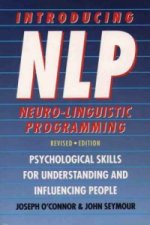
Introducing Neuro-Linguistic Programming
357 Kč -

Bilingual Family
1104 Kč -
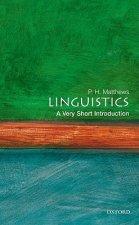
Linguistics: A Very Short Introduction
250 Kč -

Conceptualising Integration in CLIL and Multilingual Education
1583 Kč -

Teaching Grammar in Second Language Classrooms
2002 Kč -

Selektiver Mutismus bei Kindern
748 Kč -

How Languages are Learned
1315 Kč -

Cognitive Linguistics
898 Kč -

Becoming Fluent
505 Kč -

Language Strategies for Trilingual Families
409 Kč -

English Phonetics and Pronunciation Practice
1300 Kč -

CLIL in Context Practical Guidance for Educators
1980 Kč -

Oxford Handbook of Construction Grammar
1741 Kč -

Understanding Second Language Acquisition
1289 Kč -

Language and Thought of the Child
574 Kč -

Positive Psychology in SLA
1393 Kč -

Language Learning and the Brain
3804 Kč -
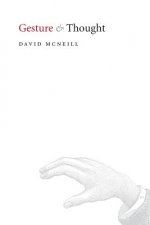
Gesture and Thought
1254 Kč -

Reflections on Language Teacher Identity Research
2004 Kč -

Why Only Us
495 Kč -

Cambridge Handbook of Psycholinguistics
2038 Kč -

7 Steps to Raising a Bilingual Child
385 Kč -

Psychology of the Language Learner Revisited
2396 Kč -

Research Methods in Second Language Acquisition - A Practical Guide
1428 Kč -

How Second Languages are Learned
814 Kč -

Psycholinguistics of Bilingualism
890 Kč -

Introduction to Multilingualism
1018 Kč -

How Language Began
854 Kč -

Foundations of Language
1426 Kč -

Introduction to Bilingual Development
717 Kč -

Grammar of Words
1238 Kč -
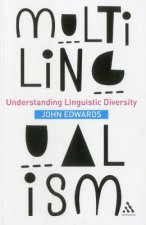
Multilingualism
1024 Kč -

Code-switching
1807 Kč -

Manual for Teaching and Learning Chinese as a Foreign Language
1282 Kč -

Teaching and Researching: Autonomy in Language Learning
1551 Kč -
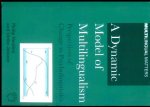
Dynamic Model of Multilingualism
1275 Kč -
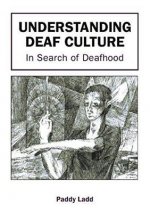
Understanding Deaf Culture
893 Kč -

English as a Lingua Franca
1758 Kč -

Reflections on Task-Based Language Teaching
1393 Kč -

Language Play
1025 Kč -

Teaching and Researching Language Learning Strategies
2004 Kč -

Oxford Handbook of Cognitive Linguistics
2800 Kč
Osobní odběr Praha, Brno a 12903 dalších
Copyright ©2008-24 nejlevnejsi-knihy.cz Všechna práva vyhrazenaSoukromíCookies



 Vrácení do měsíce
Vrácení do měsíce 571 999 099 (8-15.30h)
571 999 099 (8-15.30h)